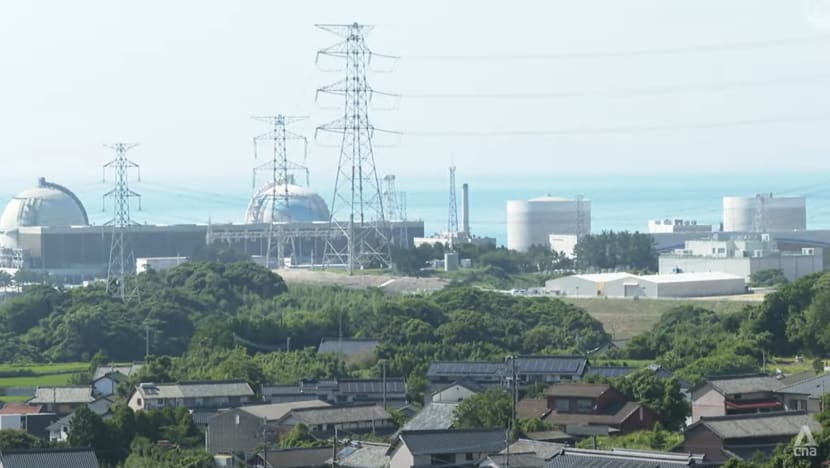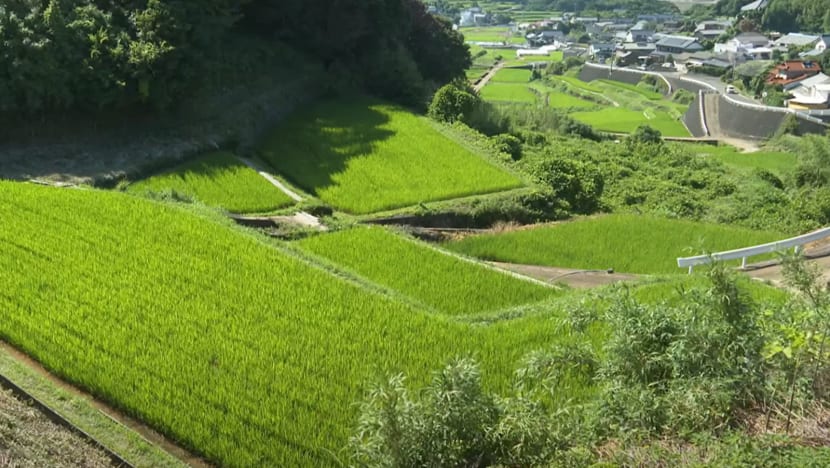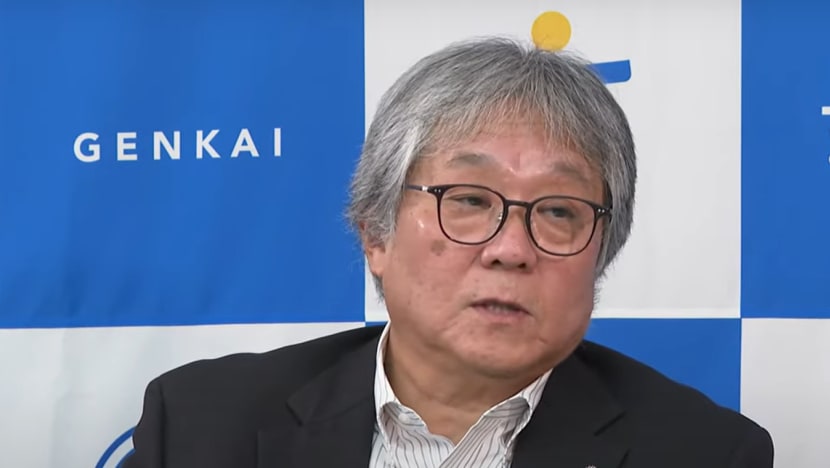Japan continues search for its first nuclear waste disposal site by screening tiny rural town
Japan has produced more than 19,000 tonnes of nuclear waste since it began generating atomic energy in the 1960s.

A nuclear plant located in Genkai town in southern Kyushu, Japan.

This audio is generated by an AI tool.
GENKAI, Japan: Cattle farmer Hiroshi Nakayama practically grew up with nuclear power in the rural town of Genkai, which has a population of just under 5,000.
The 56-year-old raises 2,000 black-haired wagyu, selling the best as premium and highly sought after Saga beef.
Even though his hometown in southern Kyushu island may one day become Japan’s final destination for nuclear waste, he brushed off concerns that it would affect his business.
Screening began last month to assess if Genkai, which has hosted a nuclear plant for about five decades, is suitable to serve as the country’s first radioactive waste disposal facility.
"Given Japan's technology, I do not think there will be environmental contamination. Some people say it is dangerous, but no one has died from (the existence of) the nuclear plant,” Mr Nakayama told CNA.
“Disposal needs to take place somewhere. We can’t say no. If not, where will it go?” he added.
Genkai residents like him traditionally support nuclear power, as they reap benefits like cheaper electricity costs in comparison to the national average.
Many of them make a living through farming and fishing in the seaside town, situated in Saga prefecture in the far southwest of Japan.
THIRD SITE TO BE SCREENED
Genkai is the third site to undergo screening after two others in Hokkaido which are still being reviewed. It is the only one among them that hosts a nuclear plant.
Japan needs a radioactive waste disposal facility as it has produced more than 19,000 tonnes of nuclear waste since it began generating atomic energy in the 1960s.
This waste will continue to accumulate in interim storage that is dangerous in the long run.
Nuclear waste needs to be stored at least 300 metres underground for about 100,000 years until radioactivity falls to acceptable levels.
Meanwhile, the entire process to select a permanent disposal site will take about 20 years.
Local authorities have the right to pull out at each stage, but by undergoing just the first step of screening, the town can receive grants of up to 2 billion yen (US$12.7 million).
The process begins with the collection of documents describing the town’s geological features. The central government-linked Nuclear Waste Management Organization will then spend two years studying the documents before publishing a report.
Based on that, local leaders will decide whether to move on to the next step.

MAYOR EXPRESSES MISGIVINGS
Some groups in Genkai, including hotel and restaurant associations, had pushed for their town to be screened by submitting petitions. These were approved by the local assembly which represents residents in Genkai.
While the town’s mayor Shintarou Wakiyama gave the green light in May, he said he has misgivings about a disposal site being built there.
One reason he cited was the size of Genkai – just 36 sq km.
"I thought we are too small and not suitable for hosting a final nuclear waste disposal site,” he added.
“There were coal mines in the old days, and many firms have been digging for hot springs.”
By having Genkai undergo screening, he said he hopes other towns will come forward.
He stressed that his decision to approve the screening was not driven by money, noting that the town’s coffers were already in good shape from substantial payouts due to hosting a nuclear plant.
“Six years before I became mayor, we had 12 billion yen (US$76 million) worth (of funds and cash reserves). Now, it is 20 billion yen,” he added.
“We have savings that can last us for two years. It is from nuclear-related income, and we can manage our town using national government subsidies.”

POSSIBLE INCOME BOOST
Nevertheless, business owners said a disposal facility could boost their income.
Genkai’s nuclear plant used to supply the most energy out of all the plants in Kyushu, but two of its four nuclear reactors went offline within the last decade after failing to meet tightened safety standards.
This came after the Fukushima disaster in 2011, when a tsunami struck a nuclear plant and led to the worst nuclear disaster since Chernobyl in 1986.
With fewer nuclear workers coming to town, local businesses in Genkai are seeing their income decline.
Mr Takatoshi Mizoue, owner of traditional Japanese-style hotel Minshuku Yotaro, said he has tried to make the lodge more attractive to students and tourists after it became “impossible” to run a business that relies on the nuclear plant.
Still, he hopes for more clarity from the authorities.
“As Japan relies on nuclear plants, I did wonder about the issue. But why now and why Genkai?” he questioned.


















